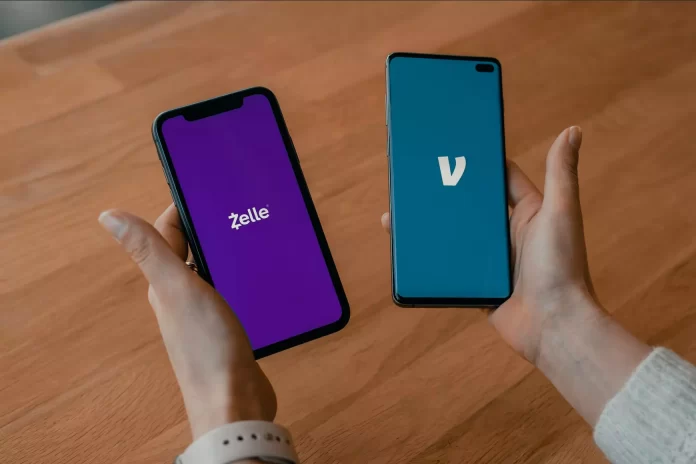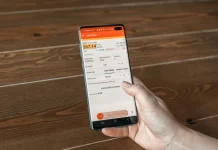Zelle is a transactional service supported by several U.S. banks, including Wells Fargo. It allows users to send and receive money without physically visiting a third-party institution. Sending and transferring money directly from your mobile device has become even easier. From splitting lunch to sending money to a friend or business, apps like Zelle, Venmo, and Cash App have revolutionized the way consumers move money, allowing them to transfer money in seconds without having to write a check or handle cash.
However, like any banking app, Zelle has a limit on transfers between accounts, including Wells Fargo. Well, let’s take a closer look at what the Wells Fargo Zelle Limit is, and whether it can be changed – made higher, lower, or removed altogether.
How does Zelle work?
Zelle is a joint development of five major U.S. banks. It’s a platform for transferring funds from account to account. Among the partners of the project are many other banks operating in the U.S., as well as the Visa and MasterCard payment systems. The main difference between Zelle and competitors is the speed of operation. Funds transferred to your account come to him instantly. Most U.S. payment and money transfer systems charge extra for instant transfers, and some do not offer such a service at all.
Unlike Venmo, money transferred with Zelle is transferred directly from one bank account to another. Most bank transfers between accounts require account numbers to initiate transactions, and these transactions can take up to several business days. Zelle eliminates this need by allowing users to transfer funds from one current account to another in minutes. However, Venmo has a fairly simple procedure for canceling incorrect transactions.
All you need to initiate a transfer through Zelle is the e-mail address or phone number of the person you are sending money to. Zelle sends the recipient a text message or email indicating that a payment is waiting for him or her, as well as a link, to accept it. If the recipient’s bank is a participating bank, the recipient simply needs to register for the service through their bank’s website or mobile app with their email address or phone number.
Once registered, the recipient can accept the payment, although new users may have to wait up to three days to receive the payment. If the recipient’s bank is not a member, they can still receive funds by downloading the Zelle mobile app, registering by email or phone number, and entering their debit card to receive funds.
Read Also:
- How to change the card on Cash App
- How to clear Venmo transactions history in a few simple steps
- How to connect your credit card to Cash App in a few simple steps
What does Wells Fargo Zelle Limit mean?
Like most banks that accept Zelle, Wells Fargo doesn’t allow transfers in excess of established limits. The amount you can transfer will depend on various factors, such as the type of account to be funded and the recipient’s transaction history.
Transferring funds to a recipient you know through your Wells Fargo through Zelle can be up to a daily limit of $2,500 and $20,000. The amount you can transfer to a recipient you know through Zelle is $2,500 and $20,000 per month. On the other hand, if you transfer funds through Wells Fargo to a new recipient using Wells Fargo, you can transfer up to $4,000 per month.
In general, Zelle limits its users to send about $1,000 per week or up to $5,000 per month. This varies by bank, so be sure to check your bank’s sending limit.
However, Wells Fargo says they can reduce or increase this amount depending on how long the user has had the account or the source of the money. If the user plans to send large sums of money, it’s better to contact Wells Fargo in person and ask about the maximum transaction limit.
After all, it’s better to be safe and make sure that, if anything happens, you can get your money back, just like you can do on Cash App.
What banks use Zelle?
Zelle is compatible with almost all major banks, and most of them even integrate the service into their mobile banking apps. Consumers downloading the standalone Zelle app must provide a phone number or e-mail address and debit card information in order to be able to receive and send funds.
If you have a Visa or Mastercard debit card, you can download Zelle and use the app to send money. If your bank already works with Zelle, you will be redirected to your bank’s mobile app if it’s downloaded to your device.
You have to be aware that you can also link Zelle to Robinhood as well as you can do it using Cash App.
Also, unlike some other P2P transfer services, Zelle doesn’t charge any fees. Venmo and Cashapp charge fees if users send money with a credit card and if users want to immediately deposit funds into their bank account. These fees can range from 1.5% to 3% and can make transferring large sums expensive.
Is it safe to send money using Zelle?
Compared to processing cash and sending bills or receipts by mail, Zelle can be considered a safer option for quick money transfers. Because funds never end up in a third-party vault, your money is always insured. And the company advertises its security because the idea is that your bank is already protecting your personal financial information.
One caveat when using Zelle is that you have to make sure you’re sending funds to the right recipient – and that’s someone you trust. Because money moves so quickly, if the person you are sending money to has a Zelle account, the transfer will be completed in a matter of minutes and therefore cannot be canceled once sent. This means you need to double-check your transfers to make sure you didn’t make a mistake and send funds to the wrong person.
Some experts warn that Zelle’s speed in transferring funds also makes it a prime target for criminals. If you transfer money in exchange for goods and services, a scammer can take your money and not complete the exchange.
Indeed, Zelle doesn’t have the security features offered by PayPal, including protection against being charged for something they didn’t buy or for not receiving the item they paid for. If you become a victim of fraud, in which you allow someone to transfer goods and services that they don’t end up providing, there may be no way to get those funds back through Zelle. If your account is compromised and money is being transferred without your permission, Zelle recommends that you contact your financial institution to see if you can report the fraud and get your money back. You can learn more about fraud and scams on the Zelle website.
Read Also:
- How to pay cash in Uber explained
- How to add money to Cash App Card at Walmart
- How to change default card in Apple Pay
What is the difference between Wells Fargo Zelle and a separate Zelle app?
Wells Fargo has partnered with Zelle to offer customers a unique experience that’s only available through Wells Fargo Online and Wells Fargo Mobile. Other financial institutions can collaborate with Zelle and offer their customers their own Zelle experience according to their own terms.
There’s also a separate Zelle app that’s not managed or supported by Wells Fargo or any other financial institution. Instead, it’s operated by Early Warning Services LLC, a third-party organization. The Zelle app is only available to users whose financial institutions don’t offer Zelle to their customers.
In addition, you should know that the Zelle app allows you to check your balance just as easily as you can do in PayPal.






